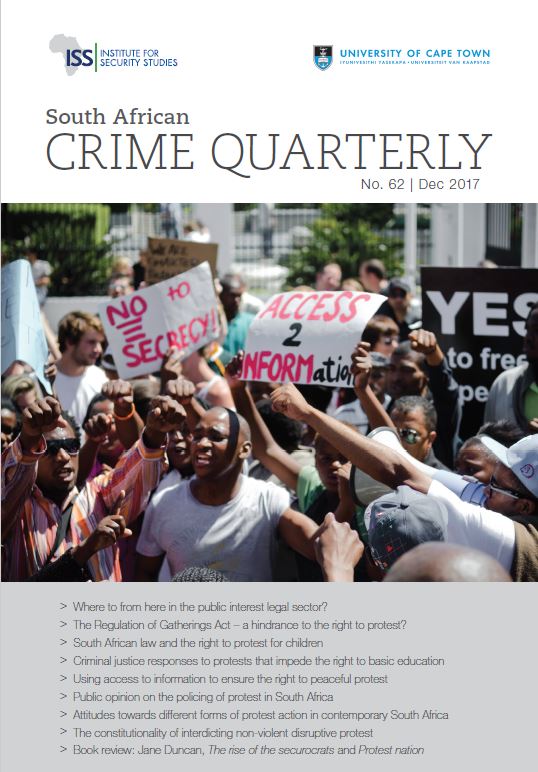Enabling the enabler: Using access to information to ensure the right to peaceful protest
DOI:
https://doi.org/10.17159/2413-3108/2017/i62a3032Abstract
The Regulation of Gatherings Act (RGA) places strict guidelines on how to exercise the right to protest, with particular emphasis on the submission of a notice of gathering to the responsible person within a municipality in terms of sections 2(4) and 3 of the Act. However, municipalities do not proactively make the notice of gathering templates available for public use (or may not have these at all), and often do not publicise the details of the designated responsible person. To test municipalities’ compliance with the RGA, the Legal Resources Centre (LRC) enlisted the help of the South African History Archive (SAHA) to submit a series of Promotion of Access to Information Act (PAIA) requests to every municipality in South Africa. PAIA requests were also submitted to the South African Police Service (SAPS) for records relating to public order policing. The initiative aimed to provide these templates and related documents to interested parties as an open source resource on the protestinfo.org.za website. The results of these efforts show that compliance with the RGA is uneven. This article explores the flaws in the regulatory environment that have led to this level of apathy within government, despite the crucial role of the right to protest and the right of access to information as enabling rights in our constitutional democracy. An analysis of the full PAIA request dataset shows the extent of government’s resistance to facilitating these enabling rights, and provides insights into remedial interventions. The article concludes with a series of recommendations, which centre on statutory reforms to the RGA and PAIA to ensure appropriate sanction for non-compliance by government, proactive disclosure of relevant information, and emergency provisions allowing curtailed procedural requirements. The intention of the proposed amendments is to minimise the possibility that these fundamental, enabling rights might be frustrated.
Downloads
Downloads
Published
Issue
Section
License
Copyright (c) 2017 Author and Institute for Security Studies

This work is licensed under a Creative Commons Attribution 4.0 International License.
SACQ is licenced under a creative commons licence (CC BY) that allows others to distribute, remix, tweak, and build upon your work, even commercially, as long a they give appropriate credit, provide a link to the license, and indicate if changes were made. They may do so in any reasonable manner, but not in any way that suggests the licensor endorses you or your use.
Copyright for articles published is vested equally between the author/s, the Institute for Security Studies and the Centre of Criminology (UCT).



.png)